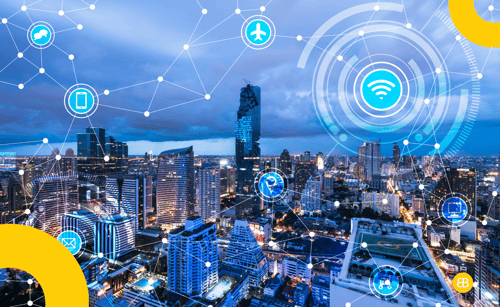Internet of Things: Connecting Devices, Data, and Smarter Services

The Internet of Things (IoT) refers to a network of connected physical devices — like sensors, appliances, or wearables — that collect and share data through the internet, often controlled via mobile apps. Learn more about the basic IoT overview. (GeeksforGeeks)
Why It Matters
Why Founders Should Care About This Term:
- Enables smart, connected experiences that set your product apart.
- Opens up new data streams to personalise and optimise services.
- Supports automation that improves user convenience and engagement.
Use This Term When...
- Building apps that interact with physical products (e.g., smart home, fitness).
- Planning hardware integrations or sensor connectivity.
- Discussing edge computing or real‑time data collection.
- Considering BLE, Wi‑Fi, or other connectivity requirements.
- Designing user flows for multi‑device interactions.
Real-World Example
In one of our projects, we developed an IoT-based mobile app that connected to indoor air quality monitors. The app allowed users to view real-time data and receive health alerts, leading to increased engagement and better indoor awareness.
Founder Insight
Founders often underestimate the complexity of syncing hardware and software. Always budget for extra testing time and firmware compatibility checks when building an IoT‑enabled app.
Key Metrics / Concepts
- Device Connectivity Rate – Percentage of devices successfully synced with the app.
- Data Latency – Delay between data generation and visibility in the app.
- Battery Efficiency – Impact of constant data transmission on battery life.
- Data Throughput – Volume of data transferred per second.
- User Engagement per Device – Interaction frequency with IoT-linked features.
Tools & Technologies
-
MQTT – Learn the MQTT messaging protocol.
-
Firebase Realtime Database – See the official Firebase guide.
-
Raspberry Pi – Visit the official Raspberry Pi site.
-
Arduino – Check out the Arduino documentation.
What’s Next / Future Trends
AI is making IoT smarter — allowing apps to not just display data, but make predictions and automate actions. Expect growth in edge computing, privacy‑preserving device analytics, and more app‑to‑hardware standardisation. Read about the future of IoT technologies.
Related Terms
- Edge AI – Bringing intelligence to IoT devices at the edge.
- Data Privacy – Critical in IoT apps that collect sensitive data.
- Multi-device Analytics – For apps managing IoT fleets.
- App Infrastructure – Needs to support device connectivity.
- Custom App Development – Often required for IoT projects.
Helpful Videos / Articles / Pages
Call to Action
Thinking about connecting your app to a smart device? Book a discovery call with our experts — we’ll help you design an IoT-ready architecture that scales.